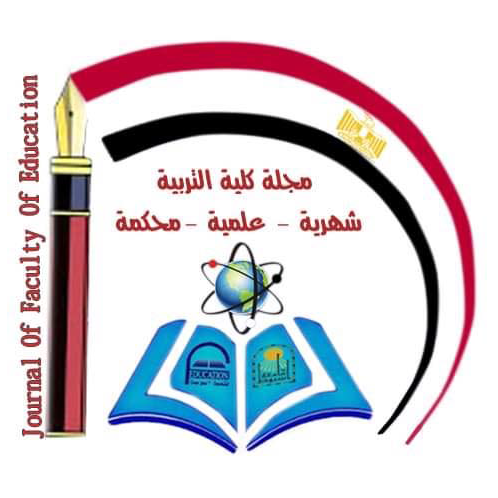Journal of Faculty of Education Assiut University - المجلة العلمية بكلية التربية-جامعة أسيوط

Article Title
Abstract
The current study aimed at identifying commonality percentages of achievement goals orientation “the sixth model” and achievement-related emotions as well as determining the level of strategic thinking skills of student-teachers who participated in the study. It also attempted to identify the differences in the fore-mentioned three variables due to gender (males / females), major (scientific / literary) and their interactions. The study also aimed at exploring the possibility of predicting achievement-related emotions by achievement goals orientations and strategic thinking skills. Additionally, it aimed at determining the profiles that distinguish student-teachers according to the three variables. Participants were 540 fourth-year student-teachers enrolled at Qena Faculty of Education. Instruments of the study included achievement goals orientations “the sixth model” scale (prepared by Haggag Ghanem Ahmed Aly), strategic thinking scale (prepared), and achievement-related emotions scale prepared by Pekrun et al. (2002) (translated by Mohammed Elwatban, 2013). Adequate statistical techniques were used. The results revealed that task/approach goals are the most common among students whereas pride was the most common achievement-related emotion. Student-teachers had also a high level of strategic thinking skills. The results also indicated that there are no statistical significant differences in the study variables due to gender (males / females), major (scientific / literary) and their interactions except for self/approach goals that were statistically significant in favor of females and anxiety that was also statistically significant for literary major students. The results indicated the possibility of predicting achievement-related emotions by some achievement goals and systems thinking. The results also revealed that there were two clusters that distinguish student-teachers. The first was named avoiders who have low strategic thinking skills and negative achievement-related emotions while the second was named approachers who have high strategic thinking skills and positive achievement-related emotions. Some recommendations were discussed and some directions for future research were presented.
Recommended Citation
عبده أحمد رشوان, ربيع
(2020)
"الانفعالات المرتبطة بالتحصيل وعلاقتها بتوجهات أهداف الإنجاز في إطار النموذج السداسي والتفكير الاستراتيجي لدى الطلاب المعلمين,"
Journal of Faculty of Education Assiut University - المجلة العلمية بكلية التربية-جامعة أسيوط: Vol. 36
:
No.
12
, Article 11.
Available at:
https://digitalcommons.aaru.edu.jo/jfe_au/vol36/iss12/11

